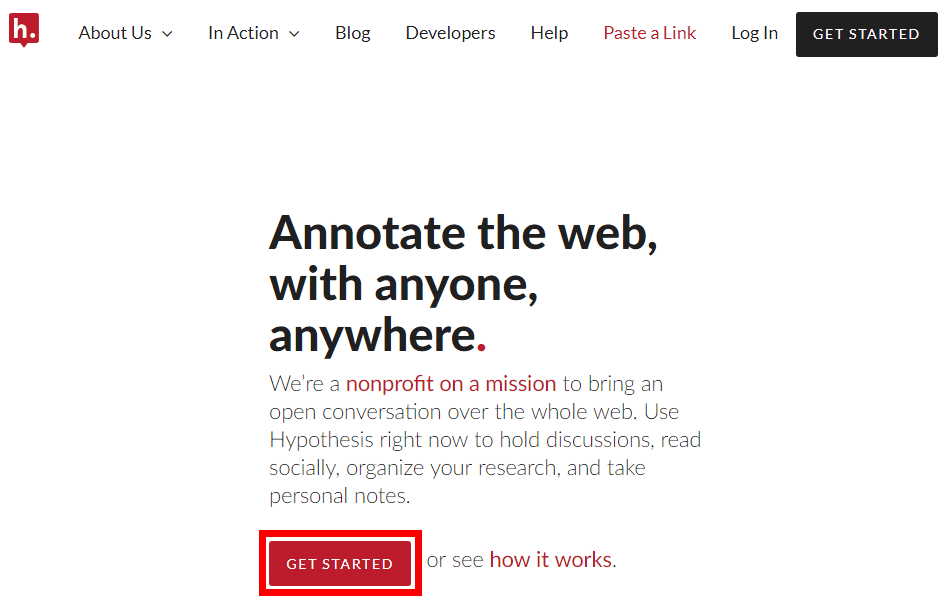
Experience with Learning and Design:
To be frank, I have made quite a lot of online learning discoveries in the last couple of years my university career; many of them have been educational, some however, not so much (many online cooking tutorials have allowed me to eat quite well as a student). But the biggest discovery is one that I have made recently, and because of this class. When we were first asked to use Hypothesis as a annotation website, I was a bit nervous. As learning new platforms during an online forum can be confusing if you can’t see a physical demonstration and if you’re not exactly tech savvy, but nevertheless, I tried. THANK GOD, I tried.
This platform, is about to be used for everything that I could possibly utilize it for. I cannot begin to fill the list of possible assignments that this online educational resource could be used for; however I will give one concrete example. If you were say teaching English 11, and you were group-reading Macbeth; the instructor could utilize Hypothesis and could annotate or highlight key pieces of the play, as well as any lines that are hard to decipher because of the old english. Further, students who will have access to the open forum can add their own thoughts, and because they will be able to access their peer’s ideas, they are able to collaborate more freely off of each other. This tool would be immensely helpful for student who struggle to pay attention in class, or those who are more visual learners. Moreover, the accessibility that this lends to students is immense, they are able to access this platform from any internet server, and by creating an account this organizes all of their annotations and contributions easily for teachers to see their progress. By allowing students to work remotely and off site, this gives them a chance to contribute ideas that have time to brew, as well as allotting time for flexibility, and allowing them to read at their own pace. These kinds of technological integrations have been successful for millennials and have allowed them to be more pragmatic in their learning styles (Conefrey, 2016).
In our readings when we were asked to look at “Effective Practices” in Crosslin’s article (2018), where we were discussing ideas behind communicating with students effectively; the idea of this open forum allows for just that. Further, it would depend on the design of the classroom, but this online learning resource also paves the way for active engagement and simple straightforward organization for learners, who are able to contribute and collaborate as freely as they wish. As we have learned through the Crosslin article (2018) it is clear that the
 grading system is problematic; many educators have migrated towards more non-traditional methods of grading. We are asking questions such as: are we as educators more concerned with the final product or the process? Where does the focus lay? Digesting material and content should be at the forefront, however many students are more prominently regurgitating information back to their instructors and are not understanding the holistic picture of their material. Moreover, what should be integrated into grading systems is a ‘learner self assessment assignment’ where students have a chance to demonstrate what they have learned from the course as well as display their progress with the content. What you are asking of students is for them to really evaluate whether they have retained this content, and if they could use it effectively to further their learning process, whatever the subject may be. This kind of self evaluation is flexible and allows learners to individually exhibit learning outcomes without it being too structural or generalized. Many instructors may find that their learners would be more honest with themselves about what they have retained or what they full comprehend, and from there instructors can evaluate whether to move on, or spend more time in an area of development.
grading system is problematic; many educators have migrated towards more non-traditional methods of grading. We are asking questions such as: are we as educators more concerned with the final product or the process? Where does the focus lay? Digesting material and content should be at the forefront, however many students are more prominently regurgitating information back to their instructors and are not understanding the holistic picture of their material. Moreover, what should be integrated into grading systems is a ‘learner self assessment assignment’ where students have a chance to demonstrate what they have learned from the course as well as display their progress with the content. What you are asking of students is for them to really evaluate whether they have retained this content, and if they could use it effectively to further their learning process, whatever the subject may be. This kind of self evaluation is flexible and allows learners to individually exhibit learning outcomes without it being too structural or generalized. Many instructors may find that their learners would be more honest with themselves about what they have retained or what they full comprehend, and from there instructors can evaluate whether to move on, or spend more time in an area of development.
References:
Bates, T. (2019). Understanding Technology in Education.
Conefrey, T. (2016). Technology in the College Classroom: Crisis and Opportunity. Educational Technology, 56(4), 37-40.
Crosslin, M. (2018). Effective Practices in Distributed and Open Learning
Photo Via: Hypothesis Website
Leave a Reply